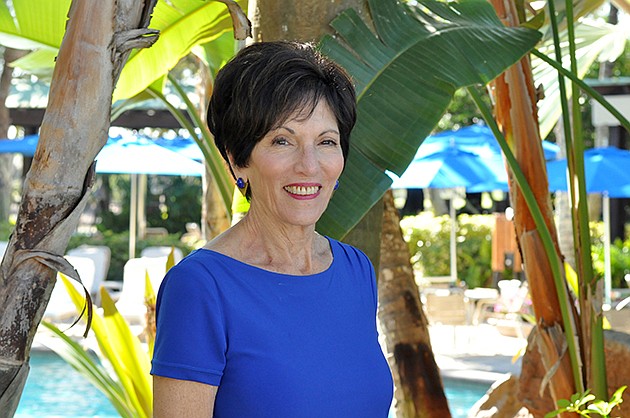- December 15, 2025
-
-
Loading

Loading

A good startup is a hard thing to find.
Just ask Bethann Kassman, the CEO of Go Beyond Network in Naples, an angel-investing firm with a sister company, Go Beyond Investing, in Europe. She's part of a growing network of angel investors
in Southwest Florida that includes Tamiami Angel Funds, Startup Angel and Fusion Pointe.
Go Beyond represents 200 investors, many of them Europeans, who have invested about $10 million in more than 30 early stage companies since inception in 2008. The firm's founder is Brigitte Baumann, a former McKinsey & Co. manager, in Zurich, Switzerland.
Most of Go Beyond's investors are Europeans in their 40s and 50s who are wealthy and have busy careers but want some exposure to angel investing and the potential rewards it can bring. “We think angel investing can be an asset class,” says Kassman.
Europeans are scouting for investments in the U.S., many of them already attracted by relatively less expensive real estate in Florida and other states. “We're seeing more interest, for sure,” Kassman says.
But angel investment opportunities in the U.S. and Europe are tough to find because Kassman's investors look for only the most promising firms with revenue growth, those that fill an unmet need, are scalable and won't get crushed by a giant competitor. Kassman estimates she has to search through 50 prospects to find a suitable one, often by traveling to investor presentations all over the country.
Go Beyond's favored industries include consumer products and services, clean technology, software, education, financial services and medical devices, among others. U.S. investments include Liqui-Prep, a Florida-based company in Melbourne that makes devices for cervical screening and other medical diagnostic procedures, and EcoTensil, a California company that makes eco-friendly paper spoons and other eating utensils.
Go Beyond pools investors' money and also monitors individual investments, which earned 19.45% in 2014 before fees. The firm earns 20% on gross capital gains over 8%, plus it charges investors an annual fee ranging from $500 to $1,200 for seeking and monitoring deals. Last year, for example, Go Beyond says its investors earned a 100% annualized return on the sale of Sensima Technology, a Swiss company that was acquired by California-based Monolithic Power Systems for $11.7 million in cash and another $8.9 million based on certain performance goals.
Still, Kassman acknowledges that angel investing can be risky. Of the 30 companies Go Beyond has invested in, two have folded and two have been successfully acquired, with the others in various stages of growth. The firm's investment horizon is about five to seven years.
Go Beyond takes a seat on each company's board of directors as part of its investment, but it doesn't seek to own the majority equity of its companies. “We're into investing and nurturing,” Kassman says. “We're not into control.”
Make the pitch
Pitching your company to angel investors used to be a closed-door affair, restricted to “accredited investors” with a net worth of at least $1 million excluding their home.
Now, with the government relaxing rules on this kind of aggressive investing, many angel organizations are opening investment pitches by early stage companies to broader audiences.
The Tamiami Angel Fund II will present the inaugural VenturePitch SWFL on March 11 at the Silverspot Cinema in Naples (www.venturepitchswfl.com). “We are opening it up to anybody and everybody,” says Tim Cartwright, the chairman of Naples-based Tamiami Angel Fund II, a $4 million fund with 45 members.
The Shark Tank-style event will bring together four entrepreneurs who will pitch their early stage business to prospective investors and a panel of judges. One company will be selected as the best prospect for investment. The fund plans similar events in Fort Myers and Sarasota later this year.
David Diamond, founder of DeAngelis Diamond Construction and StartupAngel, an angel investment fund, will be one of the panelists. “I see more and more opportunities for angel investors to find good entrepreneurs to invest in,” he says.
Diamond says he used to have to travel to Silicon Valley to find promising companies worthy of angel funding, but the popularity of shows like Shark Tank has emboldened entrepreneurs throughout the country.
Follow Jean Gruss on Twitter @JeanGruss